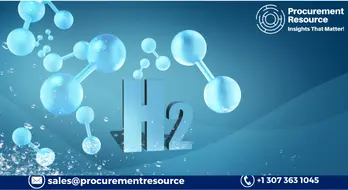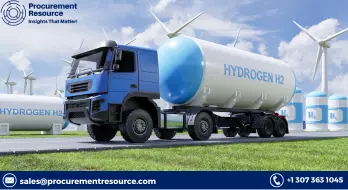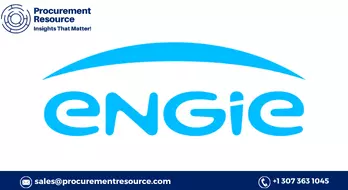Indonesia Collaborates with AGI, Germany, for Establishing Green Hydrogen Facility in Aceh
.webp)
Indonesia's state-owned enterprises have entered preliminary agreements with Germany's Augustus Global Investments (AGI) to establish a green hydrogen production facility in Aceh province. AGI's proposed plant, spanning 50 hectares, aims to produce 35,000 t/yr of green hydrogen. The investment for this venture is projected between $400mn to $700mn, contingent on the chosen transportation method for the green hydrogen—compressed, liquid, or other forms.
Request Access For the Latest Price Trends of Hydrogen
On 28 August, the Indonesian ministry of energy and mineral resources (ESDM) announced two foundational agreements between AGI and Indonesian state-owned fertilizer firms, Pupuk Indonesia and Pupuk Iskandar Muda. The first agreement ensures land acquisition for the green hydrogen project, while the second, signed with PLN, guarantees a renewable energy supply for the plant. Strategically located in the Arun Lhokseumawe special economic zone (SEZ) in Aceh, the project benefits from the region's rich renewable energy sources and robust governmental backing.
Highlighting Indonesia's advantageous position, the ministry emphasized the nation's significant potential in green hydrogen development. With its proximity to key international trade routes, Indonesia could emerge as a pivotal global hydrogen hub. Currently, the country consumes approximately 1.75mn t/yr of hydrogen, predominantly in the urea sector (88%), followed by ammonia (4%) and oil refineries (2%). As part of its broader environmental strategy, Indonesia aims to decarbonize its transportation sector by 2031 and its industrial sector by 2041, as outlined by ESDM secretary general, Dadan Kusdiana.
Read More About Hydrogen Production Cost Reports - Get Free Sample Copy in PDF
According to the article by Procurement Resource, Indonesia is taking significant strides towards green energy, partnering with Germany's AGI to establish a green hydrogen production facility in Aceh. This collaboration, backed by strategic agreements with state-owned enterprises, positions Indonesia to harness its rich renewable resources and strategic location. As the country consumes vast amounts of hydrogen, primarily in the urea sector, this venture aligns with its decarbonization goals for the coming decades. Indonesia's endeavors signal its ambition to become a central player in the global hydrogen market.




